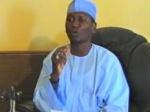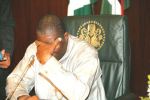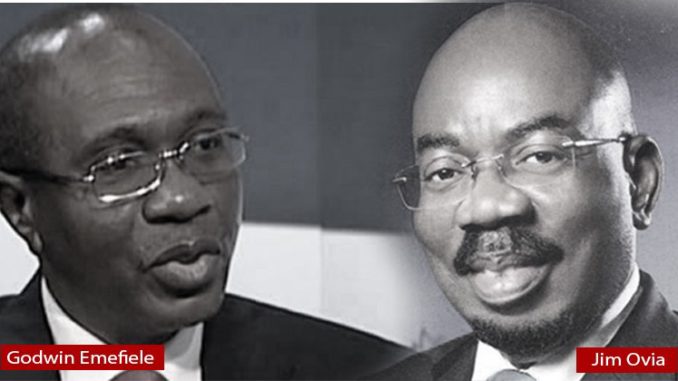
The Emergence of Boko Haram: From Religious Intolerance to Religious Terrorism in Nigeria

By Oluwaseyi Oduyela
The current security challenge caused by the Islamist terrorist group Boko Haram in Nigeria is not only about the savagery of its terror operations, and its declared mission to force Islamic law on the country, but also about the confusion over the precise ground(s) for the bloodshed.
One of the consequences has been the evolving multiple theories that attempt to expound the motive of the Islamic group. Several theories have surfaced to explain the problem, largely orbiting around socio-economic, political, and religious themes.
Though none of these viewpoints may wholly explain the problem, studies that ponder on intelligence gathering failure, poor and bad criminal justice system, political frameworks warrant particular consideration, particularly relative to national security, the country’s image, global war on terrorism and importantly the 2015 elections.
One will never understand the whys and how the so-called Taliban came into existence without knowing the history of the Izala movement in Nigeria. The Izala Movement Since the advent of the Islamic jihad by sheikh Usman Dan Fodio in the West African sub-region about one hundred years back, there was no major attempt to revive or purifies the Islamic religion in the sub region. Thus sheik Usman Dan Fodio not only waged his jihad to purify the Islamic religion but to also do away with the corrupt feudal system of the Hausa rulers of the time that suppress and exploit their helpless subjects. It was with this in mind that Dan Fodio and his disciples gallantly fought to victory and into the history books. The Izala movement was formed by some Islamic scholars led by the late sheikh Abubakar Gumi in the late 1970s with these revival and purification of Dan Fodio in mind. Thus it was given the name in Arabic. “JAMA ATU IZALATUL BID AH WA IQAMATUS SUNNAH;” meaning ‘AN ORGANISATION FOR THE ERADICATING OFINNOVATIONS AND UPHOLDING THE WAYS OF THE PROPHET’. This group engaged in preaching and propagating the pure Islamic religion in every nook and corner of the country for years. Their preaching activities attracted hundreds of thousands of people, both young and old, the educated and uneducated, the low and high of the society etc. With the economic collapse in Nigeria, leading to unemployment and low and poor standard of living, the youths in the north turned to radical Islam. Consequently, the Izala movement became the natural choice. The youths in the north massively joined the Izala movement, and there were massive gatherings every weekend. The clerics preached to faithful to purify Islam and follow the path of the prophet in honesty and everything they do. The preaching sessions were touching and emotional. In spite of the preaching, the youths and the intellectuals could not see any change in the way things are going. All they see is business as usual; the same corrupt practices in high places involving the elites and the high government’s officials Muslims and non-Muslims alike. As a result, some youths decided to withdraw completely from the society and into the bush in Yobe state. Their reason was that the society is so corrupt and rotten that they want to be part of it. As a Youth Corps Member in Borno State in 1990 serving as a teacher at Government Girls Secondary School, Gajiganna, I worked with some of these separatists. He prays separately and does not interact with his fellow teachers. As soon as the military ushered in the Obasanjo-led civilian government in 1999, Governor Sani Yerima of Zamfara state was the first to launch Sharia law in his state and like wild fire the cancer of Sharia started to spread across the northern states of Nigeria. Yar’Adua who was Katsina governor then embraced it, Kwankwaso of Kano resisted it, Sokoto under Bafarawa launched it too. While the public complained, Obasanjo’s government allowed the northern governors to prevail.It was not too long that the people realized that the Sharia introduced by their governors were mere political gimmicks. Though Yerima, now a Senator introduced Sharia in Zamfara, it was only effective in the villages, in the state capital I saw women in trousers, riding on motorcycles. Most of these were forbidden in the rural areas of the state. The youth in the north were agitated by the connivance of their clerics who they believed were to check the excesses of their political leaders and speak the truth.
The Birth of a New Radical Movement
So in 2002, Mohammed Yusuf, also known as Ustaz Mohammed Yusuf, born in Girgir village, in Jakusko, Yobe State. Yusuf founded the militant Islamist group officially called “Jama’atu Ahlis Sunna Lidda’awati wal-Jihad”, which in Arabic means “People Committed to the Propagation of the Prophet’s Teachings and Jihad”. And unofficially called Boko Haram in 2002 and became its spiritual leader.
Mohammed was an earlier member of the Muslim Brotherhood movement (Yan Brothers) founded by El Zakzaky. When the “Yan Brothers” movement split, an organization accentuating the Prophetic Sunnah emerged known as “Izala ul-Bida wa Iqamat us-Sunnah” (Removing Religious Innovation and Establishing the Prophetic Sunnah) and Yusuf was part of this movement for a while. Another split ensued among three mosques which served as administrative hotbeds of the movement, and in 2002, Yusuf and his students established their own movement known as “Jama’at Ahl us-Sunnah li’d-Da’wah wa’l-Jihad” (The Group of the People of Sunnah for Preaching and Jihad), a group that would lay the foundation for the birth of Boko Haram. He indoctrinated the sect with his own teachings, which he claimed were based on purity. Yusuf’s notion of “purity” and teachings were inspired by the works of Ibn Taymiyya, a 14th century legal scholar who preached Islamic fundamentalism and is considered a chief philosopher for radical groups in the Middle East, after whom Yusuf named his mosque in Maiduguri.
At the beginning, the sect recruited its members from school drop-outs and unemployed university and polytechnic graduates, most of who tore up their certificates, women and children; student members withdrew from school. Yusuf made his members to believe that their state of despair was caused by government which imposed Western education on them and failed to manage the resources of the country to their benefits.
Contrary to his preaching, Yusuf lived the life of a rich man, with access to cars, radios and telephones while most of his followers were so poor that they lived on dates and other fruit. Responding to questions from the police during his interrogation, he replied, “That is due to their circumstances. Each person has his own circumstances.”
His way of life appears to be a hotchpotch of deviousness and “do as I say not what I do.”
The Separatists
Some of Yusuf’s members preferred to stay and farm in the bush and survived than to be part of the society. They rebuked the Izala scholars as being part of government agents and so being oppressors themselves. They accused the scholars of helping to suppress the masses by their calls to respect the constituted authority. They despised the constitution and those who worked with it. Thus the youths started migrating en-mass to a bush at Kanama village in Yobe state. Kanama village is about one hour walk to a village called Tam in Niger Republic. In company of other National Youth Corps members, during the 1990 elections, we were posted to Kanama as election officials and on foot; we visited Tam in Niger Republic. Although from the start, the sect’s mission was to impose the Shari’a on Nigeria; the leadership went about its preaching peacefully, but not without attracting attention among other Islamic preachers who saw the preaching and interpretation of the Quran as a recipe for violence and an affront to constituted authority. The group’s main activities in the bush of Kanama were fishing, collection of woods for sales and preaching at their free time to the surrounding villages. All the villagers testify to the honesty and politeness of the boys. The youths were peacefully coexisting with their villager hosts for sometimes until suddenly the village head of Kanama (local chief) ask the boys to leave his domain immediately. The boys pleaded with him to rescind his decision, but the head refused. On the insistence of the local chief, the boys decided to search for another place to relocate, but they decided to put their belongings in the custody of the same local chief, pending their settlement in their new location.After settling down in their new location, they return to the chief for their belongings, only to be informed by the chief that he has handed it over to the police, and that they should go and claim it from the police. The boys were bitter about it but finally decided to go to the police with a delegation of four or five of their leaders. But on reaching the police station all of their leaders were detained by the police for no reason. The arrest and detention started the conflict of the youths (Taliban) and the government of Nigeria in the northeast. On getting information of the detention of their leaders by the police in Yobe state, the rest of the boys quickly mobilized and attacked the police station to set their leaders free. The boys over-ran the police station in less than an hour. They not only free their leaders but took all the weapons and ammunition in the police station. The following morning they heard information that the police have mobilized and were advancing towards them. They decided to pre-empt the police attack. To the surprise of everybody, according to an eye witness these few untrained undergraduates ‘captured’ five local governments in a single day, and they overran the police headquarters at Damaturu the Yobe state capital, a distance of about three hundred Kilometres in one day. All that the security forces in Yobe did was to run for their life, while the so-called taliban looted their armory. So the main source of supply of arms and ammunition to the taliban were the police armory. From that day on, there are periodic clash of the taliban with the police and the result most of the time was for the army to intervene on the side of the police to tamed the boys.
Arrest and Extra-judicial killing of Mohammed Yusuf
On Thursday 30th July 2009, Nigerian security forces captured Mohammed Yusuf after days of clashes which have killed more than 300 peoplce. He was captured in Borno state. He was arrested after reportedly being found hiding in a goat pen at his parents-in-law’s house. Nigerian security forces had stormed Boko haram’s stronghold on Wednesday night, killing many of the militants and forcing others to flee. The violence began on Sunday night in Bauchi state, before spreading to other towns and cities in the northeast. It is estimated that between 300 t0 600 people have been killed in the violence.
Shortly afterwards, the police announced that he had been killed while trying to escape. Hardly anyone believes that version of events. The most common perception in Nigeria and elsewhere is that the police found him a nuisance and took it upon themselves to get rid of him. A shocking picture of his body was published on the BBC website. It is pretty bruesome and not to be viewed by those with weak stomachs.
Meanwhile, President Umaru Yar’Adua announced that he has asked his national security adviser to investigate the circumstances surrounding the Boko Haram uprising in Maiduguri and other parts of Northern Nigeria. The president did not order for the investigation of the death of Yusuf in police custody, neither did the National Assembly members. In fact most Nigerian media celebrated his execution without questioning police version of the story.
Why should the police not be believed? Why should the case be investigated? Why it was not investigated? All these questions will lead us to where we Nigeria is today on this home-grown terrorism….
….Stay tuned….


Leave a comment